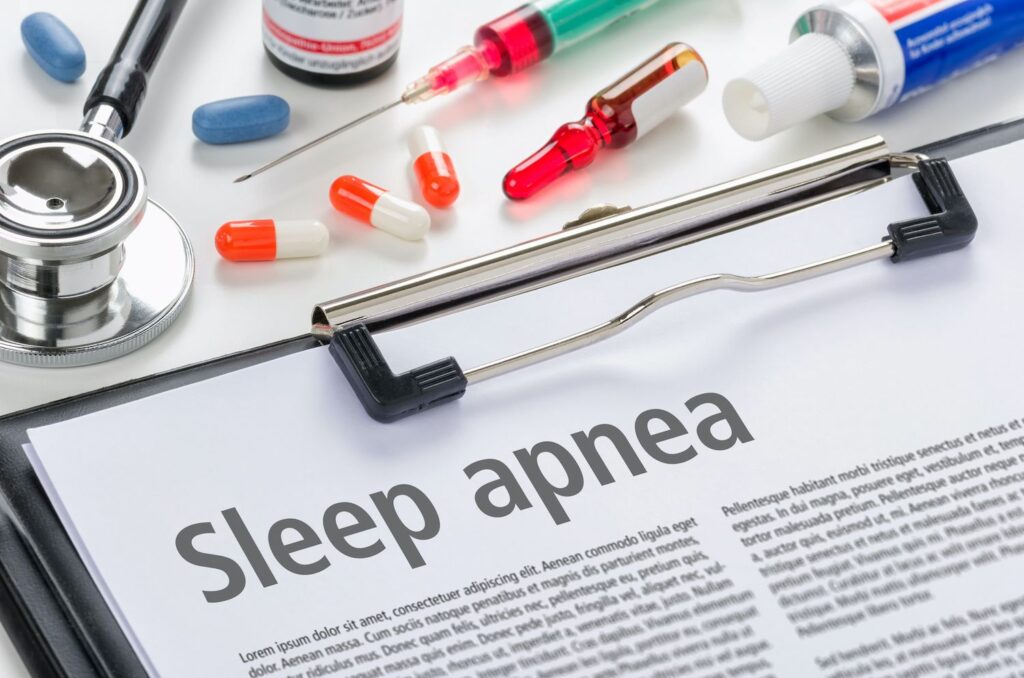It goes without saying that snoring can be extremely annoying, especially if your bed partner does it loudly every single night. Not only does it impair the quality of everyone’s shuteye, but it may indicate a serious problem – sleep apnea. At Derby Dental, Dr. Meghan Kilkelly can provide personalized mouthguards that when worn to bed, prevent snoring by keeping the airway open.
This leads to a better night’s sleep and also a reduction in the risk of heart attack, stroke, dementia, and other conditions associated with untreated sleep apnea. If you’re ready to finally get the quality, snore-free rest you deserve, call our Derby Dental team today for sleep apnea therapy in Austin, TX. Our office also provides restorative dentistry treatments for patients in Austin, Texas.

What is Sleep Apnea?
Sleep apnea is a disorder in which a person has short but frequent cessations in breathing throughout the night. When these episodes occur, the body enters “panic mode” and partially wakes up to resume normal breathing. While these disturbances are often so short that a patient doesn’t remember them, it prevents them from reaching the deep, restful stages of sleep. That’s why people with sleep apnea often feel exhausted even when they “slept” for the recommended seven to eight hours.
Often, sleep apnea occurs when tissues in the mouth and throat collapse and block the airway. Air rushing past these tissues causes them to vibrate, which produces a snoring sound.
Oral Appliance Therapy
Fortunately, Dr. Kilkelly can treat both snoring and sleep apnea without the need for invasive surgery. She can make a customized oral appliance that comfortably fits over the teeth at night. This device gently shifts your lower jaw forward to keep your airway clear and prevent lapses in breathing. The end result is an improved quality of rest for you and your partner!
Oral appliance therapy is great for patients with mild to moderate sleep apnea. Some patients complain about the inconvenience of a CPAP machine, especially while traveling. However, oral appliance therapy is compact and easy to use. You won’t have to worry about wires or tubes getting in the way. An oral appliance device can easily fit into your luggage for ease when traveling.
An oral appliance is similar to a custom mouthguard. It is a smaller, cushioned device that sits between your teeth. As a result, it can help put your jaw in the correct position.
